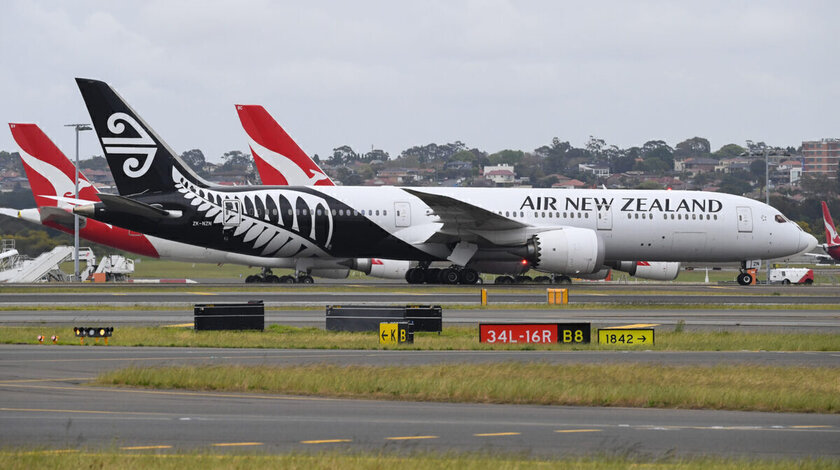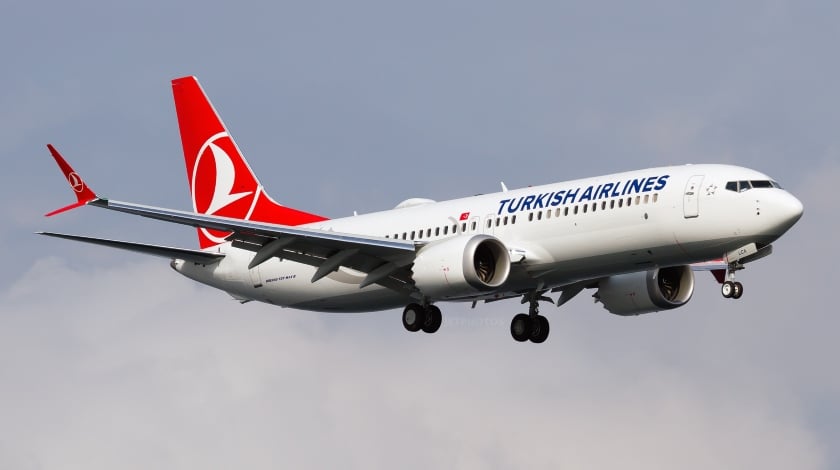The Dallas-based carrier has followed competitor American Airlines in this move, which announced the extension of the alcohol ban last month. American also said it would extend the ban until January to “create a safe environment” for its flight crew.
This is not the first time both companies have made this decision. In early June, the two decided to extend the ban along with the first mask mandate postponement – originally until September – due to a particular incident on a Southwest flight.
Aviation & Tourism Network Group
Aviation & Tourism Network Group is a global community of Aviation & Tourism Lovers, Enthusiast Professionals& Leaders who are harnessing the Potentials in the Aviation and Tourism Sector to bring a Sustainable Economy Driven by the Aviation and Tourism Industry in their Country Vision Statement Networking Tourism and Aviation Professionals together. Welcome On-Board AvTourNet✈
Translate
Monday, September 13, 2021
SouthWest Airlines Extends Alcohol Ban until 2022
Heathrow calls for revise of travel restrictions
New report from Heathrow have revealed passenger numbers remained 71 per cent down in August versus the same month pre-pandemic. The airport said ever-changing restrictions, expensive and unnecessary testing requirements and lack of a common approach across borders were behind the slump.
From being the busiest airport in Europe in 2019, Heathrow is now tenth as rivals including Schiphol, Paris and Frankfurt are all recovering at a much quicker pace.
The airport called on the government to remove the amber list and create a safe but simple two-tier system – a green list and red list, retaining hotel quarantine.
Fully vaccinated travellers should not be required to take a test, while those who are not vaccinated should continue to take a pre-departure and arrival test using lateral flow, following up with a PCR test if positive, the airport said.
As passenger numbers grow, Border Force must ensure they have adequate resources and processes in place to ensure travellers receive a warm welcome into the UK. Recent scenes of passengers waiting for hours to be processed through the UK border are “totally unacceptable,” a statement added.
Heathrow chief executive, John Holland-Kaye, said: “The government has the tools to protect the international competitiveness which will boost the economic recovery and achieve its Global Britain ambitions.
“If ministers fail to take this opportunity to streamline the travel rules then the UK will fall further behind as trade and tourists will increasingly by-pass the UK.”
Monday, August 9, 2021
Eurowing Looks to Enhance its Presence in Africa with new Routes to Namibia and Mauritius
The leisure airline will also begin Frankfurt to Mauritius flights from October, 1, this year becoming the fourth new destination for the carrier.
More flights to be reinforced in November as it will also add attractive short and medium-haul routes to its portfolio, with flights to Hurghada and Marsa Alam in Egypt, as well as flights to Marrakech in Morocco.
The airline is the only European airline currently offering scheduled direct flights to Moi Intl. Airport in Mombasa taking advantage of the demand for leisure travel at a time when the ongoing coronavirus pandemic is demanding increased adaptability from airlines, particularly new startups. The airline also serves 3x weekly service to Abedi Karume international airport in Zanzibar.
The airline will be operating short-, medium- and long-haul flights out of the Munich hub from summer 2022 onwards and as a wholly owned subsidiary of Deutsche Lufthansa AG, the airline draws on the expertise and experience of one of the world’s leading aviation companies.
Green Africa receives its Air Operator Certificate, to begin flight operations on 12th August 2021
 Green Africa, Nigeria’s Lagos-based value airline received the required Air Operator Certificate from the NCAA on Monday, 9th August 2021. Airline to commence soft launch of flight schedule immediately and first official commercial flight to take off on Thursday, 12th August 2021.
Green Africa, Nigeria’s Lagos-based value airline received the required Air Operator Certificate from the NCAA on Monday, 9th August 2021. Airline to commence soft launch of flight schedule immediately and first official commercial flight to take off on Thursday, 12th August 2021.Following the successful completion of all five phases of the AOC application process, Green Africa was today presented its Air Operator’s Certificate (AOC) by Engr. Kayode Ajiboye on behalf of Capt. Musa Nuhu, Director General of the Nigerian Civil Aviation Authority (NCAA), at the NCAA headquarters in Abuja. With this certificate, Green Africa is able to commence operations in accordance with its initial route network unveiled earlier in June.
Speaking on the issuance of the AOC to Green Africa, Capt. Musa Nuhu said, “We at the NCAA are impressed with Green Africa’s effort and commitment to safely connect many more people across the country and we look forward to the positive contribution that the new airline will bring to the Nigerian aviation industry.”
Commenting on the major milestone for Green Africa, Babawande Afolabi noted, “This is a watershed moment in our journey to use the power of air travel to create a better future. Thanks to the NCAA, the gTeam, our investors and other stakeholders, Green Africa is now set to start serving customers.”
Customers can now make bookings on greenafrica.com for flights across Green Africa’s route network. For further enquiries on new bookings or existing reservations, customers are encouraged to call the gCare on 0700GREENAFRICA or send an email to gCare@greenafrica.com
Thursday, April 22, 2021
Government of Panama accepts IATA Travel Pass
Emirates may need further funding if air travel fails to recover soon
Airbus to create new aeroparts companies in France and Germany
Tuesday, April 20, 2021
New Zealand and Australia Create a Travel Bubble

Tearful reunions were all around Auckland airport on Monday since residents from Australia could travel freely to New Zealand without a quarantine obligation for the first time in more than a year.
According to the Australian Government Department of Home Affairs, all people residing in Australia or New Zealand can enjoy quarantine-free travel, as long as they meet the health, immigration, and other standard border clearance requirements.
While Australia has previously allowed Kiwis to enter the country without quarantine, New Zealand is following suit only now. However, if you arrive in New Zealand from any other country, you must quarantine for 14 days at your own expense.
“The bubble marks a significant step in both countries’ reconnection with the world, and it’s one we should all take a moment to be very proud of,” New Zealand Prime Minister Jacinda Ardern said in a news release.
Both Australia and New Zealand did a great job keeping the Covid-19 infection cases low in their countries due to tight restrictions.
Source: Aviation Voice
Saturday, April 17, 2021
Emirates Starts Using IATA’s Health Passport App
Turkish Airlines Resumed Boeing 737 MAX Operation

Turkey’s national carrier Turkish Airlines put one of its Boeing 737 MAX aircraft back into service following the Directorate General of Civil Aviation (DGCA) Boeing 737 MAX lift.
The first flight Turkish Airlines made using its Boeing 737 MAX after the type’s grounding was from Istanbul airport to Ankara. TK2138 took off from Istanbul Airport at 10:10 a.m. and landed at Esenboğa Airport in Ankara just before 11:00 a.m. At 11:50, the aircraft flew back to Istanbul, landing at just after 13:00. At 16:00 the same afternoon, it headed from Istanbul to Izmir and returned just after 19:00.
Turkish is one of the European airlines that rely heavily on Boeing 737 MAX, with 75 MAXs joining its fleet in the future. The only companies ahead of Turkish Airlines by Boeing 737 MAX orders are IAG and Ryanair Group.
At the moment, Turkish Airlines has 11 Boeing 737 MAX 8 and one Boeing 737 MAX 9 in its fleet. The MAX 8 variant has a two-class cabin, 16 seats in business and 135 in the economy. The single MAX 9 has a capacity for 16 business and 153 economy passengers.
Source: Aviation Voice
Wednesday, April 14, 2021
Air Canada shares turbulence after government takes equity stake
France to scrap certain domestic flights where the train offers a viable alternative
Friday, June 26, 2020
IATA proposes alternatives to quarantine
| The International Air Transport Association (IATA) urged governments to avoid quarantine measures when re-opening their economies. IATA is promoting a layered approach of measures to reduce the risk of countries importing COVID-19 via air travel and to mitigate the possibility of transmission in cases where people may travel while unknowingly being infected. |
“Imposing quarantine measures on arriving travelers keeps countries in isolation and the travel and tourism sector in lockdown. Fortunately, there are policy alternatives that can reduce the risk of importing COVID-19 infections while still allowing for the resumption of travel and tourism that are vital to jumpstarting national economies. We are proposing a framework with layers of protection to keep sick people from traveling and to mitigate the risk of transmission should a traveler discover they were infected after arrival,” said Alexandre de Juniac, IATA’s Director General and CEO.
|
| Mandatory quarantine measures stop people from traveling. Recent public opinion research revealed that 83% of travelers would not even consider traveling if quarantine measures were imposed on travelers at their destination. And analysis of trends during the lockdown period shows that countries imposing quarantine saw arrivals decrease by more than 90%—an outcome that is similar to countries that banned foreign arrivals. |
| “A layered approach to safety has made flying the safest way to travel while still enabling the system to function efficiently. That should be an inspirational framework to guide governments in protecting their citizens from the terrible risks of both the virus and joblessness. Quarantine is a lop-sided solution that protects one and absolutely fails at the other. We need government leadership to deliver a balanced protection,” said de Juniac. Credit: AviTrader |









